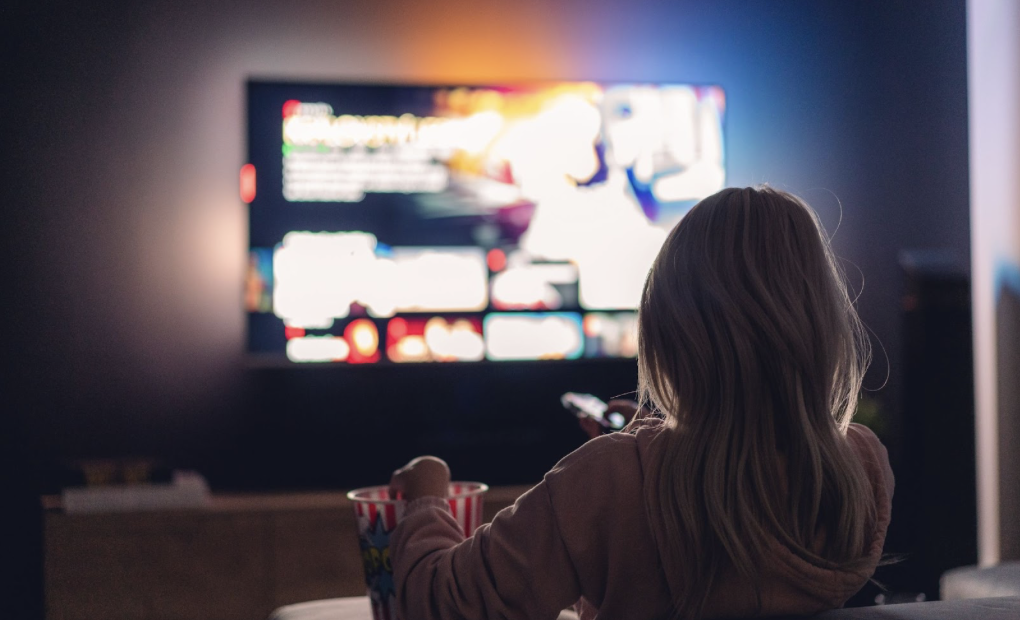Coping Mechanisms Unveiled: Navigating Strategies for Mental Wellness
A woman watching the television, while holding a remote controller (picjumbo.com)
Coping mechanisms involve conscious and voluntary strategies that individuals use to manage stress, which are distinct from subconscious defense mechanisms. Coping styles, measured by scales like COPE, are relatively stable traits guiding responses to stress, categorized into problem-focused, emotion-focused, meaning-focused, and social coping. Physiologically, coping styles involve brain neurotransmitters, with vasopressin and oxytocin playing roles. Maladaptive coping, like disengagement, is linked to poor mental health.
In patients, maladaptive coping correlates with health-risk behaviors and non-adherence to therapy, emphasizing the importance of understanding and addressing coping mechanisms in disease management. Coping styles influence patient compliance and healthcare worker well-being, with problem-oriented coping, social integration, and religious practices associated with lower burnout among healthcare professionals. Recognizing and addressing coping styles in both patients and healthcare workers contributes to improved health outcomes and reduced burnout.
Binge-watching, or engaging in extended TV or streaming marathons, can be a positive activity for cognitive and mental health, stimulating the brain and emotions. Brain studies indicate similar activation in areas whether watching videos or live content. However, moderation and self-awareness are crucial, as excessive binge-watching may indicate using it as a coping mechanism to avoid reality. Regular binge-watching interfering with social or occupational well-being may suggest addiction, leading to physiological and psychological dependence due to emotional entrainment with on-screen content. Practicing moderation and self-control is advised to prevent potential negative consequences.
Listening to music is a common form of emotional self-care with positive effects on cognitive and mental health. Music therapy, rooted in the therapeutic qualities of music, is recognized in healthcare, proving effective, especially for mood disorders. However, a recent study explored whether certain music-listening habits could sabotage mental health. The study examined strategies like diversion, solace, and discharge, with the latter, using music to express negative emotions, correlating with higher anxiety and neuroticism, particularly in men. While expressing emotions, even negative ones, is considered part of healthy emotional regulation, the study suggests that the discharge strategy might be linked to less healthy emotional habits. The intricate relationship between individual differences, music genres, and emotional responses highlights the complexity of music’s impact on mental well-being.
Coping mechanisms are strategies individuals use to manage stress, challenges, and emotions. They can be categorized as either healthy or unhealthy. Unhealthy coping mechanisms, often providing temporary relief, fail to address root causes and may lead to negative consequences. Common examples include substance abuse, emotional eating, self-harm, isolation, and impulsive behaviors. In contrast, healthy coping mechanisms, such as mindfulness practices, exercise, seeking social support, journaling, and problem-solving, are sustainable, promote well-being, and address underlying issues. Developing positive coping mechanisms is crucial for resilience, mental health, and personal growth. Assessing the effectiveness, and impact, and addressing underlying causes helps differentiate between healthy and unhealthy coping skills. Regular reflection and seeking professional support contribute to cultivating and maintaining healthy coping strategies.
References
Algorani, E. B., & Gupta, V. (2023). Coping mechanisms. PubMed; StatPearls Publishing. https://www.ncbi.nlm.nih.gov/books/NBK559031/
Lakhan, S. (n.d.). Is binge-watching bad for your brain? A neurologist weighs in. Constant Therapy. Retrieved March 4, 2024, from https://constanttherapyhealth.com/brainwire/is-binge-watching-bad-for-your-brain-a-neurologist-weighs-in/#:~:text=Using%20it%20as%20an%20informal
Davis, L. C. (2015, November 2). Is it harmful to use music to cope with life? The Atlantic. https://www.theatlantic.com/health/archive/2015/11/is-it-harmful-to-use-music-as-a-coping-mechanism/413236/
Team, C. H. E. (2023, May 24). What are unhealthy coping mechanisms? Charlie Health. https://www.charliehealth.com/post/what-are-unhealthy-coping-mechanisms


